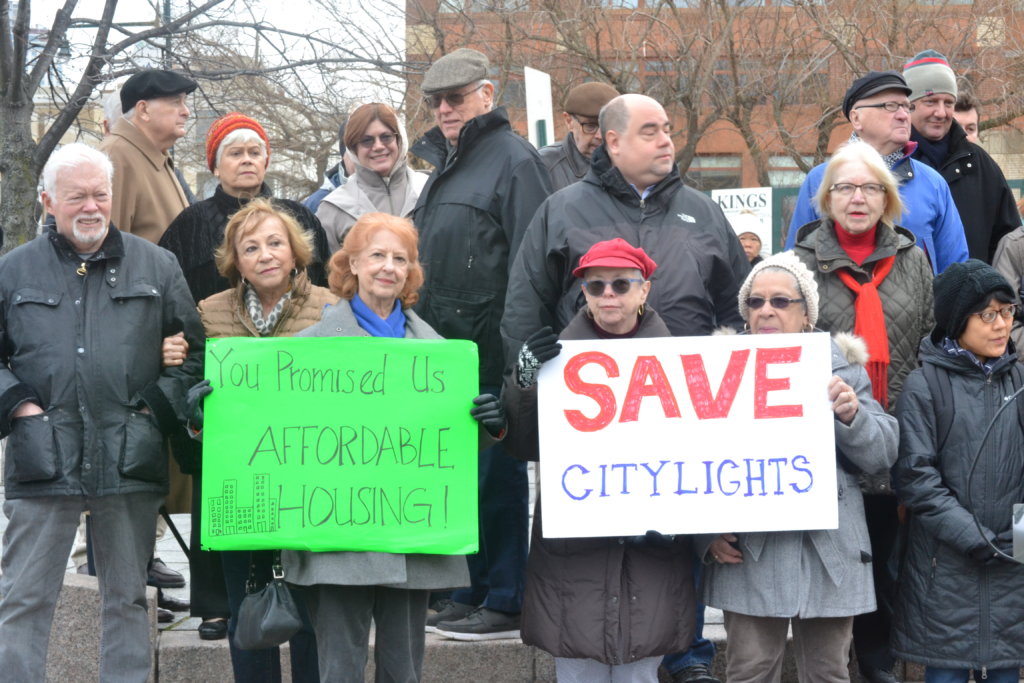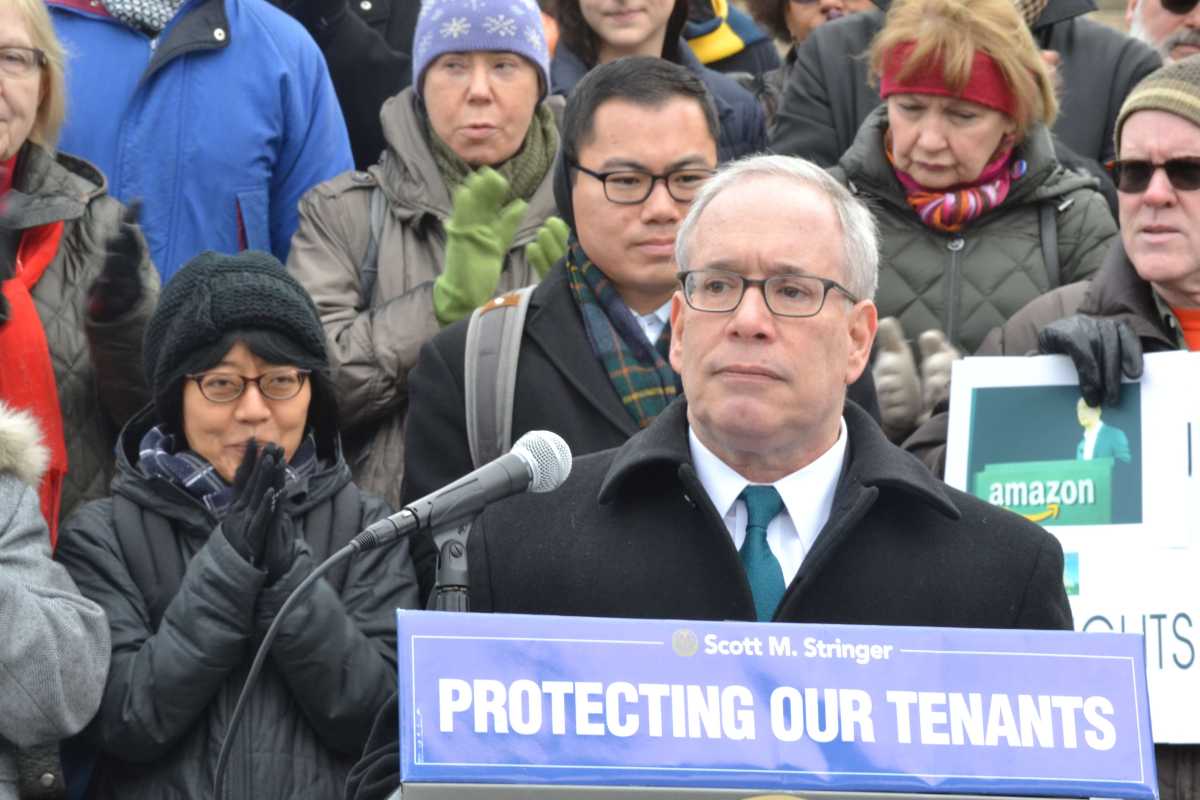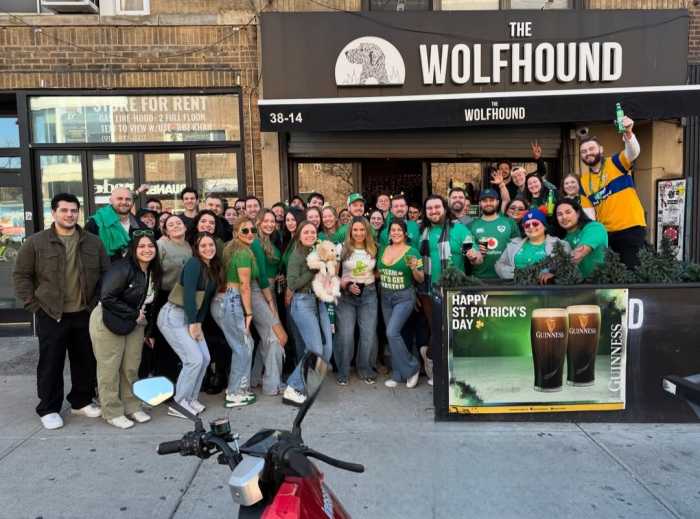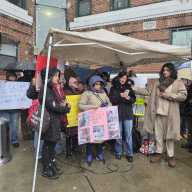At a rally on Thursday morning in Long Island City’s Gantry State Park, New York City Comptroller Scott Stringer announced that he would immediately start work on preventing residents at the Citylights co-op from losing their homes.
A fixture of the Long Island City skyline long before the development boom, the 42-story co-op loomed behind its residents, circled around the Comptroller while he spoke to the media. His plan: get the New York City Department of Finance and the Empire State Development Corporation together to agree on what to do about the building’s now expired abatement and the $500,000 annual ground lease tenants must pay.
This was not the first time such a gathering had occurred. Residents rallied on multiple occasions in 2018 to bring awareness to the 20-year tax abatement that was phased out on July 1, resulting $5.8 million tax bill and a property value increase by nearly 100%.
“We love it when people come here. We love it when new immigrants and new industry from all over the world want to be in our city,” Stringer said to the media as a crowd of Citylights residents waved signs behind him. “But there is a covenant that must be kept.”

That covenant to which Stringer referred is Mayor Bill de Blasio’s affordable housing plan.
Last year, the city of New York spent $1.582 billion on financing 32,116 affordable homes in order to make a dent in the city’s affordable housing crisis, according to the New York City Housing website. According to Stringer, the fact that long-time affordable housing residents — Citylights is Queens largest affordable co-op — are struggling to pay their mortgages goes against the spirit of his plan.
“People who build our community, they must stay and they must be celebrated for building our city,”said Stringer.
The irony of the situation is not lost on Citylights tenants.

Shelley Cohen, a tenant of Citylights for 21 years, said that when she first moved to the co-op it was surrounded by warehouses and trash. At the time, the neighborhood didn’t have many supermarkets, major drug store chains or restaurants. It was a difficult place to live, according to Cohen.
For two decades tenants of Citylights have suffered through noisy construction, poor building conditions and even soil remediation. But they stuck it out. Now, Cohen and her fellow “pioneers” feel especially entitled to stay in the neighborhood they took a chance on.
“Now, the city and the state are extending handouts to big companies, like Amazon, while my middle-class neighbors and I suffer,” said Cohen. “If the city and the state can work together to lure Amazon, they can find a way to relieve of us our ground lease.”




































